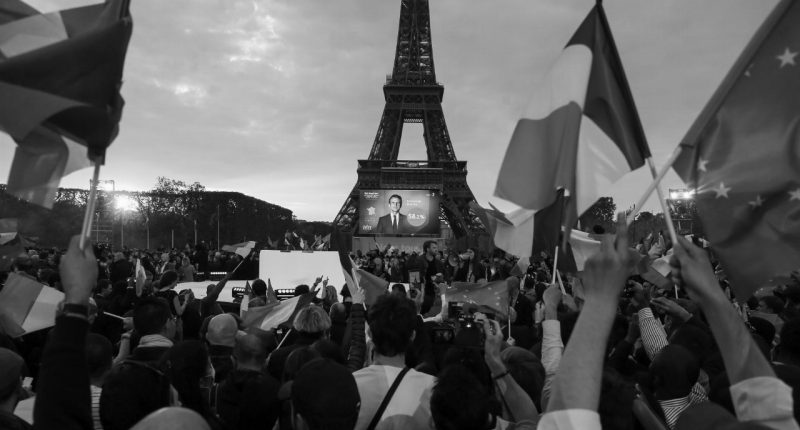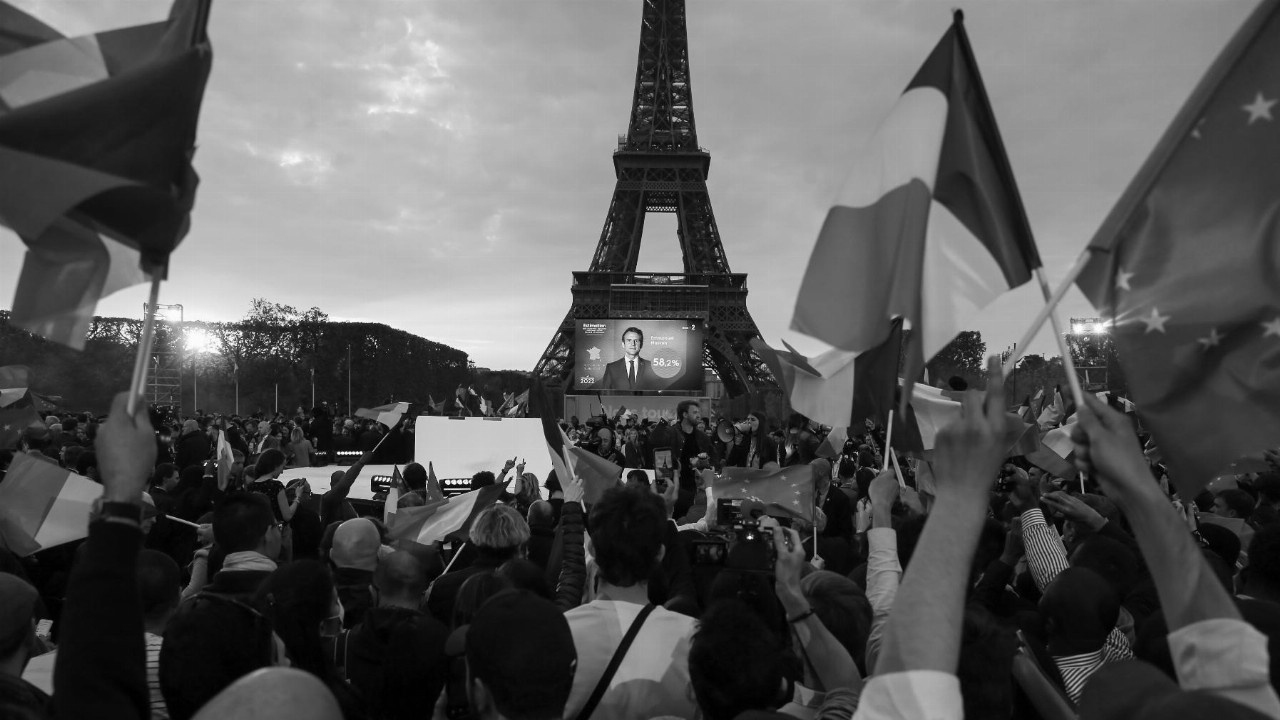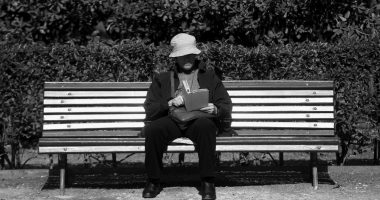France can breathe again.
On Sunday, President Emmanuel Macron was re-elected, taking 58.5 per cent of the vote to Marine Le Pen’s 41.5 per cent. After a couple of agonising weeks where the country contemplated the possibility of the presidency falling to the far right, the result seemed to herald the return to business as usual.
Yet it would be premature to celebrate. French democracy, in truth, has never been in worse health. Mr. Macron scored two million fewer votes than he did in 2017, and the two major parties of the postwar era, the Republicans and the Socialists, have all but collapsed. In their wake, French politics is now driven by three forces — headed by Mr. Macron, Ms. Le Pen and the leftist Jean-Luc Mélenchon — pulling in opposite directions. Add in record levels of abstention, and you have a recipe for instability.
But the problem goes beyond politics. Mr. Macron’s divisive presidency gave rise to an extraordinary explosion of popular anger and resentment. This took many forms, from the Yellow Vests protests — a movement initially against a rise in the fuel tax that metastasised into all-out opposition to the president — to bellicose culture wars. The French people have been at once animated and anaesthetised by the past five years. The national mood, given to febrile outbursts and hurt withdrawals, is uneasy.
That brew of volatile feelings is not going anywhere. In the coming years, as the country deals with the continued fallout from the pandemic, geopolitical crises and price hikes, it may be given ample cause for expression. Mr. Macron won, yes. But France is still in trouble.
To be sure, there were similar cries of despair in 2002, when Jean-Marie Le Pen made it to the second round. But the situation then was much more contained: It was considered a freak contest and a one-off accident. Jacques Chirac, who won a resounding 82 per cent, was so confident of victory that he refused to debate his opponent. A million took to the streets of Paris to “stop Fascism,” and voters flocked to Mr. Chirac, a center-right candidate, to ensure Mr. Le Pen had no chance of victory.
Things looked very different this time. When Mr. Le Pen’s daughter, Marine, made it to the second round for the second election in a row, nobody was surprised — and nobody marched in protest. The “republican front,” an emergency coalition of mainstream voters and parties against the far right, was weaker than it’s ever been. Mr. Macron’s victory was for a time seriously in doubt and far from emphatic when it did come. The far right may have been stopped at the ballot box this time, but its ideas and candidates are now firmly part of the mainstream.
The election in 2017 looks, in retrospect, to have been a missed opportunity. Mr. Macron, a political newcomer, spoke of upholding the French republican values of liberty, equality and fraternity. He pledged to set up more democratic political institutions and to hold elites accountable. He promised to tackle France’s colonial legacy and acknowledged French cultural and religious diversity. For many, it was a breath of fresh air. Here was a young president with a mandate and a motive to renew French democracy and society.
It didn’t happen. Early in his tenure, Mr. Macron was compared with Justin Trudeau, energetically bringing progressive reform to a tired country. Today Mr. Macron’s critics see him as a very different leader: a French Margaret Thatcher. His five years in office have been marked by contempt for democratic oversight, condescension for the poor and cruelty toward migrants. In the process, he disappointed and even enraged those who’d hoped he would be true to his campaign promise to be the president for all.
Politically, the effects have been parlous. By siphoning off large chunks from both centre-left and centre-right electorates, Mr. Macron helped bring about the demise of France’s two major parties. As a result, politics has become fragmented and debates have become polarised. Traditional party oppositions on socio-economic matters have been supplanted by endless culture wars on Islam, immigration and national identity. In this atmosphere, the left under Mr. Mélenchon has radicalised, winning the support of the young and multiracial but putting off more moderate left-wing voters.
The far right, for its part, has taken the opportunity to pose as the only plausible opposition force to the president. In a disillusioned and dissatisfied society, that’s found some purchase. Éric Zemmour, the media pundit turned politician, led the way in staking out extreme positions on Islam and immigration. Ms. Le Pen, softening her image, followed in his slipstream. The strategy was successful: About a third of the electorate cast their votes in the first round for the far right, an unprecedented high.
The upsurge of support for the far right is hardly straightforward. But it’s clear that it expresses, among other things, an amorphous anger afoot across France. The Yellow Vests, whose members came from across the political spectrum, illustrated the depths of disquiet in the country — something the pandemic seems only to have exacerbated. In the past two years, a forceful anti-vaccine movement has taken root. The old ideologies of socialism and conservatism have been replaced by conspiracy theories and political confusion.
That’s dangerous. In the final two weeks of the campaign, Mr. Macron offered concessions to the left, among them revising a planned pension reform and committing anew to environmental protections. Already superficial, these promises do little to suggest the president will change course. If he doesn’t, the anger and bitterness of his compatriots will surely swell. That could spell more radicalised social movements from the left and rancorous resentment from the far right. Legislative elections in June could be an early taste of the difficulties to come.
Far from a model democracy, France is a country ill at ease with pluralism, multiculturalism and political liberalism — a condition revealed by the steady rise of the far right. That’s bad enough. But it’s hard to dispel the feeling that something worse may be around the corner.
This article originally appeared in The New York Times.
Philippe Marlière is a professor of French and European politics at University College London.





